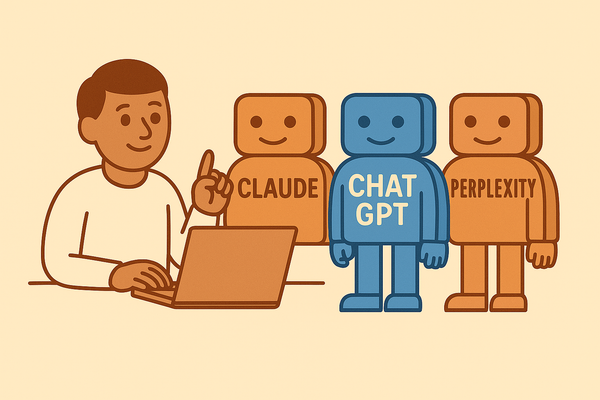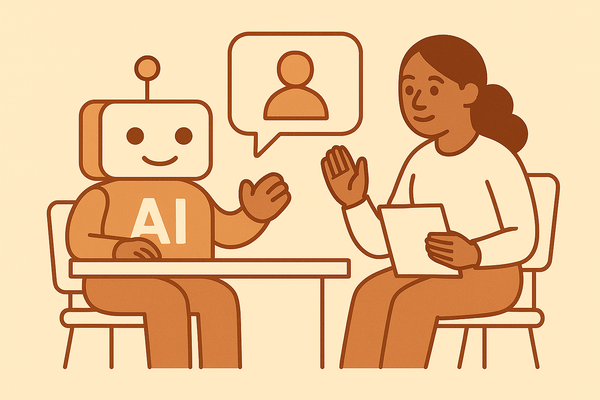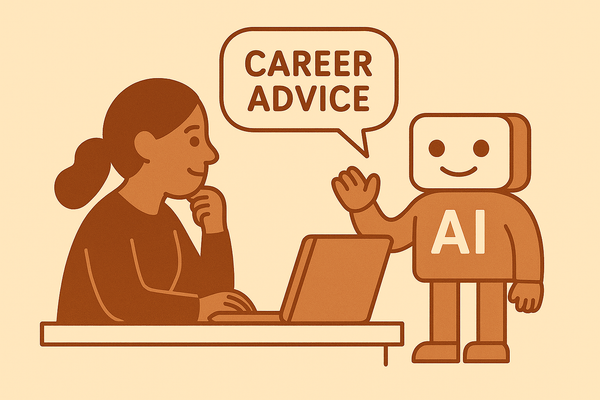Are Entry-Level Jobs Doomed?
Or Are We Just Asking the Wrong Question?

A stark warning shook the tech world this week
Dario Amodei, CEO of Anthropic, creators of Claude, painted a grim picture: AI could wipe out half of entry-level white-collar jobs, spiking unemployment within the next one to five years. Woof.
A jarring take, coming from someone building the technology in question. As you might imagine, this led to a bit of chatter.
Githubs’s CEO actually pushed back on the idea, expressing a need to hire more junior talent - specifically, “AI-native” engineers. His view: the future isn’t about fewer people, but people who fundamentally understand how to work with, leverage AI from the ground up.
Who’s right?
A future of significant job loss, or where new jobs emerge for those fluent in AI?
This debate, understandable, certainly attention-grabbing, is the wrong one. For you, the individual navigating your career? This debate shouldn’t be the focus. Dwelling on it leads to paralysis.
The real question isn’t AI changing the job landscape, but how you will adapt
Regardless of whether 50% of entry-level jobs disappear or if companies suddenly start hiring millions of “AI-native” professionals, one truth remains: doing nothing is the worst decision you can make right now.
Think about major technological leaps. When electricity became widespread, did people debate endlessly about eliminating lamplighter jobs? (did you know there was a job called lamplighter?!) Or did they start figuring out how to use this new power? When the internet arrived, was the most productive use of time debating if physical mail carriers would become obsolete, or learning how to connect, and communicate online?
Those who feared, resisted these changes, who actively chose not to learn, adapt, found themselves increasingly marginalized. The same principle applies to AI. Ignoring AI isn’t just about potential job loss; it’s about the guaranteed loss of opportunity and relevance in years to come.
Right now, many people use AI as an assistant
You open ChatGPT and ask it to help write an email. A solid starting point, but that's just the tip. The future of working with AI isn’t just having an assistant; it’s about orchestration.
Instead of copying, pasting, and prompting - imagine pressing a shortcut and saying, “Write an email to [recipient] about [topic].” An AI agent understands, opens your email client, addresses the recipient, drafts the email based on instructions, accessing other context.
Becoming AI-fluent means becoming a skilled AI orchestrator
Learning how to effectively communicate with, guide, and leverage increasingly capable AI agents to achieve complex outcomes is the future. Less doing tasks with AI, more telling AI what to do - and knowing how to tell it so it understands, and executes.
This is where the “AI-native” concept comes
Not just people who use AI tools; people who fundamentally understand how to integrate AI into their workflows, processes, effectively orchestrating its capabilities to achieve your goals.
If this all sounds like too much or overly dramatic: you simply have not been paying attention my friend. And that’s only okay because you have this newsletter.
Enjoyed this post? Subscribe to my newsletter to get similar posts each week.




